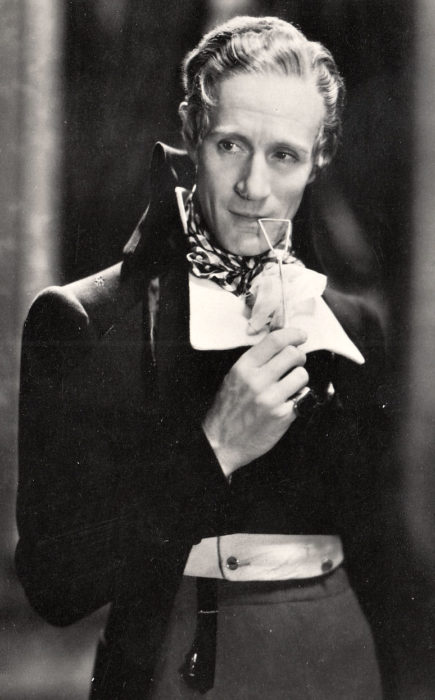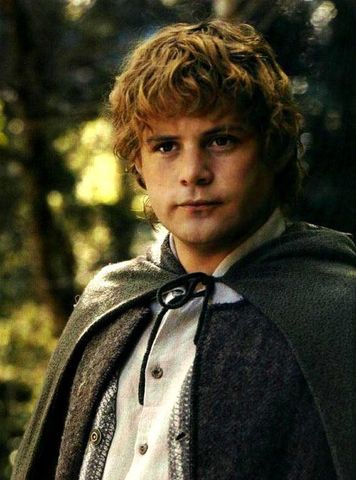Great Male Characters in Fantastic Fiction
This week, (name of male celebrity) was accused of (insert one: sexual harassment, abuse of power, assault, and/or all the above).
People have reached their limit and seem to have collectively decided to hold such celebrities to account. For Christians, that also means responding to abuse accusations in our contexts, such as Christian conferences.
Still, I’m grateful to see other voices speaking out to remind us of this: We still have many celebrities, Christians, and men in general, who stand apart from this behavior. Many of them actively condemn such abuse, and show by their example a grace-blessed humanity that rebukes harassment and abuse of power.
Fantasy fans also find many positive examples of male characters in fiction. They are gallant, gracious, humble, protective. They struggle to act virtuously. They use their gifts (including the gift of power) in righteous ways.
I’ve asked five female friends to describe a favorite male character from fantastic fiction. Here they are.
Laura VanArendonk Baugh, author, The Songweaver’s Vow
 I don’t have a favorite hero, because I can’t commit to a favorite anything. But I think Sir Percy Blakeney is often overlooked.
I don’t have a favorite hero, because I can’t commit to a favorite anything. But I think Sir Percy Blakeney is often overlooked.
He’s a remarkable hero in many ways, though the story by now has been remade and parodied so often it’s easy to miss its original significance. (The Scarlet Pimpernel was the first hero with a secret identity. Batman, Superman, and Zorro all owe their origin to Sir Percy.) This is a man who deliberately destroys his own reputation, allowing all the world to perceive him as a useless fop who cannot think of anything more significant than fashion and socializing, tricking even his own wife into believing him shallow and meaningless. Meanwhile, he is spending his fortune and risking his life to save lives during the Reign of Terror.
Tricking his wife, you say? Doesn’t sound much like a hero. But understand that Sir Percy believes his wife Marguerite an accomplice to murder, turning in a French aristocrat for execution. He cannot risk his secret with her. Yet even while he distrusts her, Sir Percy respects her, keeping the vows he made though it would be easy to find other company in the libertine society of the late 18th century. The first novel is the story of their restitution. By the standards of the day, he places in Marguerite an astonishing amount of trust and authority, eventually taking her undercover with him and giving her command of his assisting League.
I don’t know that I would have the strength to make everyone despise me, so I find Sir Percy’s resolve and dedication impressive and inspiring.1
Marian Jacobs, author, Drawn from the Water; writer, Lorehaven Magazine
 When The Legend of Tarzan released in 2016, I drooled in the theater and babbled all the way home like the nerd I was.
When The Legend of Tarzan released in 2016, I drooled in the theater and babbled all the way home like the nerd I was.
In my opinion, that film is the best Tarzan so far. Partly because it was epic like a good superhero film, and partly because John Clayton/Tarzan was at the height of virtue—not to mention the man knows how to admit when he’s wrong.
One of the greatest accomplishments in this adaptation is an intensely romantic story about a married couple. In a society where marriage isn’t considered sexy or romantic, Tarzan aims to balance a great respect for the strength of his wife while still being passionately protective. What could be more virtuous or romantic?
Bethany Jennings, author, Dreamskip
 As an author, I love telling stories about heroes we could hope to emulate—not because they are unrealistically flawless, but because they face dark times by clinging to integrity and stepping out in courage.
As an author, I love telling stories about heroes we could hope to emulate—not because they are unrealistically flawless, but because they face dark times by clinging to integrity and stepping out in courage.
One of my favorite male heroes I’ve written is Milo, a dream-traveler from my short story Dreamskip (coming out in my Severed Veil collection on October 27).
Milo is confronted in his dreams by a girl he knows, who claims to be in danger and pleads for his aid. Initially he’s disturbed by her panic, and brushes the whole thing off as a nightmare. But when he becomes convinced that the girl’s real life might be at risk, Milo races to find her despite his great fear, putting his own safety on the line—and possibly even his life.
The best male characters are not merely “strong” or “brave,” but rather they are men who image Christ by their love. “Greater love hath no man than this …” (John 15:13). Without love, all acts of masculine strength, cunning, bravery, or power are nothing.
Avily Jerome, author, The Breeding; book reviewer, Lorehaven Magazine
 One of my favorite heroes is a bit unconventional. It’s Fezzik the giant from The Princess Bride. He’s not someone who is normally thought of as a hero, but I think he is because of a few specific reasons.
One of my favorite heroes is a bit unconventional. It’s Fezzik the giant from The Princess Bride. He’s not someone who is normally thought of as a hero, but I think he is because of a few specific reasons.
First, he stands up for someone who is being oppressed. He says “I just don’t think it’s right, killing an innocent girl.” This very nearly costs him his livelihood. Moreover, even though he continues on his job of kidnapping, he is gentle with her and careful to keep her safe.
Later, when he is fighting The Man in Black, he doesn’t take the advantage of surprise–he has honor and believes in a fair fight. When he finds Inigo, he nurses him back to health. And I think the most telling part of his character is that at the end when they escape the castle, Buttercup trusts him completely. Despite his role in her initial kidnapping, she feels safe with him, trusting him to keep her from harm. He is a hero because of the choices he makes to protect those weaker than himself even when he could easily overpower them and when it would be in his best interest to do so.
Lindsay Franklin, author, The Story Peddler
 Our entertainment is filled with a particular type of reluctant hero—those “chosen ones” who understand their high callings in life but just want to be normal, for heaven’s sake. And while I love those Harry Potters and Frodos in my fantastical stories, my hands-down favorite male character breaks that mold.
Our entertainment is filled with a particular type of reluctant hero—those “chosen ones” who understand their high callings in life but just want to be normal, for heaven’s sake. And while I love those Harry Potters and Frodos in my fantastical stories, my hands-down favorite male character breaks that mold.
Samwise Gamgee is the opposite of a chosen one. It’s practically an accident that he’s on the quest at all. He’s a supporting cast member, not the star of the show. But what drives Sam is his loyalty to Frodo and his belief that there’s a greater good to be served. Without Sam, the quest wouldn’t have been completed. Frodo would have been lost to the power of the ring. Sam does the right thing simply because it’s good, and he’s the real hero of that story.
- More from Laura VanArendonk Baugh: “The Scarlet Pimpernel is inspirational in other ways, too: when author Baroness Orczy initially saw her novel repeatedly rejected, she converted the story into a play, which became wildly popular and fueled the sale of the novel and its many sequels. Don’t give up, writers!” ↩










































Percy Blakeney! YES! But Francis Crawford of Lymond really *must* be mentioned here as well.
Lymond has too much of a chequered past for my liking, and also I would be deeply concerned for the fate of our children should anyone challenge him to a chess game. A paragon of virtue he is not — but my word, what a compelling and emotionally devastating series that is. Plus I learned oodles from Dunnett about what you can do with unreliable narration…
I love that Sir Percy got a mention here! Yes, I LOVE him as a hero!
I think, even beyond the things that Laura mentioned, what makes him a hero is that he risks his life, his reputation, and sacrifices even the love of his wife for his enemies. He isn’t doing this for his own countrymen (like so many of the heroes that are inspired from him like Zorro and Batman). Sir Percy risks all this for people who live in a completely different country, a country that at the time was his country’s enemy.
Also, I LOVE that you used a picture of Leslie Howard as Sir Percy from the 1930s version. Yes, the movie is old and black and white so it doesn’t get as much love as the later 1980s version. But Leslie Howard was a hero in his own right. Although he was a big name actor for the day, he volunteered in WWII and died doing something mysterious for the British intelligence office. A real life Sir Percy.
Percy Blakeney – yes!!! And Samwise and Fessik
I cast my vote for Faramir, who strikes the perfect balance between humble self-knowledge and unwavering moral principles. Unlike Boromir and many others who believed they could turn the Ring’s purpose to good by their own noble efforts, he knew his own frailty well enough to say that he would not touch the Ring if he found it lying on the highway. Courteous, eloquent, scholarly, gracious to others, and tragically underrated if you ask me (though still a favourite of many women I know who’ve read the LotR books instead of just seeing the movies).
Also in a similar mold: Mr. Knightley (from Jane Austen’s EMMA), and Peter Pevensie.
Ha, apparently Faramir was Tolkien’s self-insert character (and we can totes speculate on ulterior motives for him shipping Eowyn with his self-insert). But hey, there are lots of lots worse self-inserts.
But Mr. Knightley strikes me as being too much a mansplainer, but there could be extenuating circumstances in that Emma is too far up her own butt.
I tend to think deeply about this subject because I have five boys I’m trying to raise to be godly men. I think all of my favorite male characters are the ones who are uncontrollable. Who stand on principle no matter what happens or how odd others find them. Men like Aragorn (the man in the book not the movie), Faramir, Peter, even Edmund. Some were reluctant leaders but all pushed aside their doubts to follow a great cause. Many gave up women, homes, and more to follow a course of adventure but all were driven by loyalty to a cause greater than themselves.
What we are rapidly loosing today is such men. I’m not saying they cannot be gentle or kind (my husband is) but honestly writing with my husband has shown me how men have a knack for putting the “greater good” or Heavenly call over the whims of emotion and mere reason. Women tend to like the soft side in men because its tame and controllable. However we serve a God who made men to stand and to lead. I think all men should be as Lewis said of Aslan: “He’s not a tame lion but he’s good.”
I’m having a hard time with how you formulate “controllable” vs “uncontrollable.” Everyone should be persuadable to some degree (people should know how to admit when they’re wrong), but not the extent that they become wishy-washy.